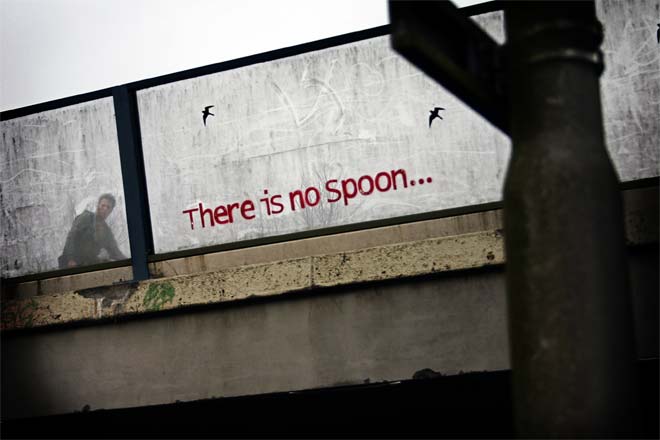The words there and their are often confused and misused because they are homophones (they sound alike). A good way to remember the difference between the there and their is to remember — Here with a T is there; so it refers to a place.
While "there" refers to a place, "their" means belonging to, or associated with, a group of people (e.g., "their clothes" — clothes that belonged to them).
Comparison chart
Examples of There vs. Their
- She envied their expensive shoes.
- I don't want to go there because it's too cold.
- Their van was destroyed in the accident.
- Once upon a time, there was a princess who turned into a frog.
In the following video, an English teacher explains the differences between their, there, and they're with more examples.
Definitions
Their
"Their" is the possessive form of the plural pronoun they, used as an adjective preceding a noun (e.g., their company, their books on the shelves, their promotion to upper management).
Despite being plural, "their" has also come to be used as a replacement for the singular possessive pronouns his and her, as an indefinite singular antecedent (i.e., when the gender of a person is unknown or when referring to people in a mixed group or crowd).
- Someone parked their car in a towing zone.
- Does everyone have their ticket in hand?
This use of "their" is common in casual conversation and informal written English, but whether it is used in academic or professional writing often depends on style guide requirements, which typically prefer the more verbose "his or her" or alternating gendered pronouns.
- Someone parked his or her car in a towing zone.
There
"There" has multiple functions and can be used as an adverb, noun, pronoun, adjective, or interjection.
As an adverb, "there" can refer to in or that place, a moment in time or a point in a process, or a particular or specific matter. It can also call attention to a particular spot.
- My wife will be there soon. (referring to in or that place)
- She paused there to let him reply. (referring to a moment in time)
- I was right to be sad there. (referring to a specific matter)
- There he is! (calling attention)
As a noun, "there" refers to a state or condition.
- Once you get into college, you have to face it alone from there on.
As a pronoun, "there" replaces a noun where the verb comes before the subject or the subject is not mentioned. It can also supplant a place name or a specific time-based noun.
- There is no way to fail. (replacing a noun)
- She went there last week. (replacing a place name)
- We were there when that bell rang. (replacing a time-based noun)
As an adjective, "there" provides emphasis.
- See the lady there for directions.
As an interjection, "there" can express a variety of feelings and emotions, ranging from relief, satisfaction, and approval, to encouragement and consolation.
- There! We won!
- There, there, you'll get them next time.


 There
There  Then
Then  Their
Their  Affect
Affect  You're
You're  Estar
Estar  There
There  Then
Then  Their
Their  Affect
Affect  You're
You're  Estar
Estar
Comments: Their vs There